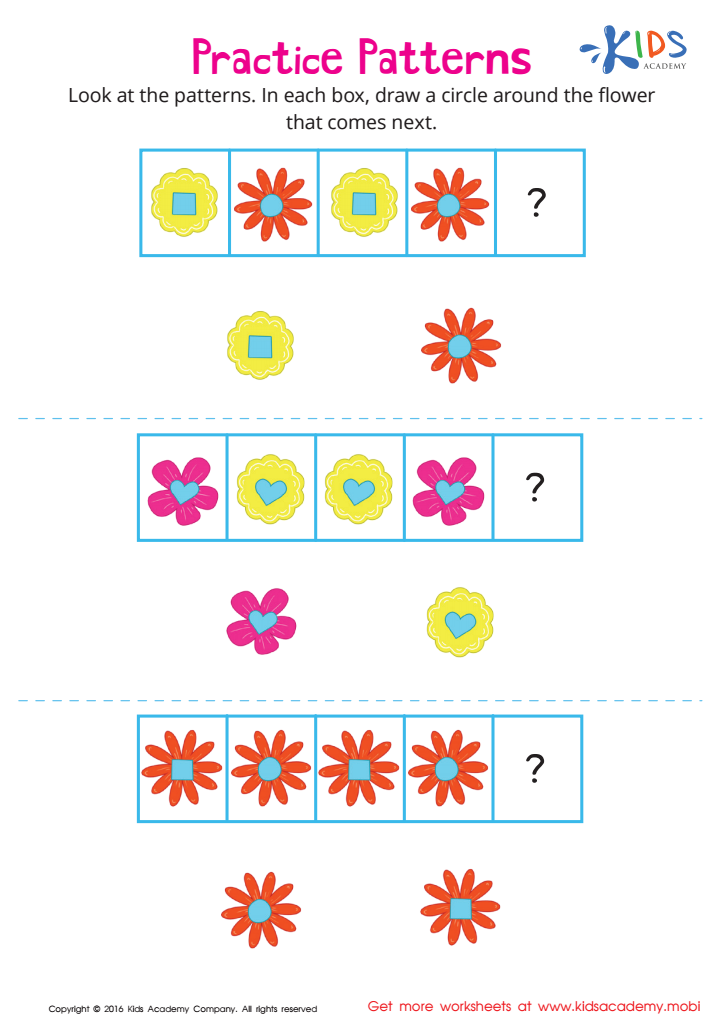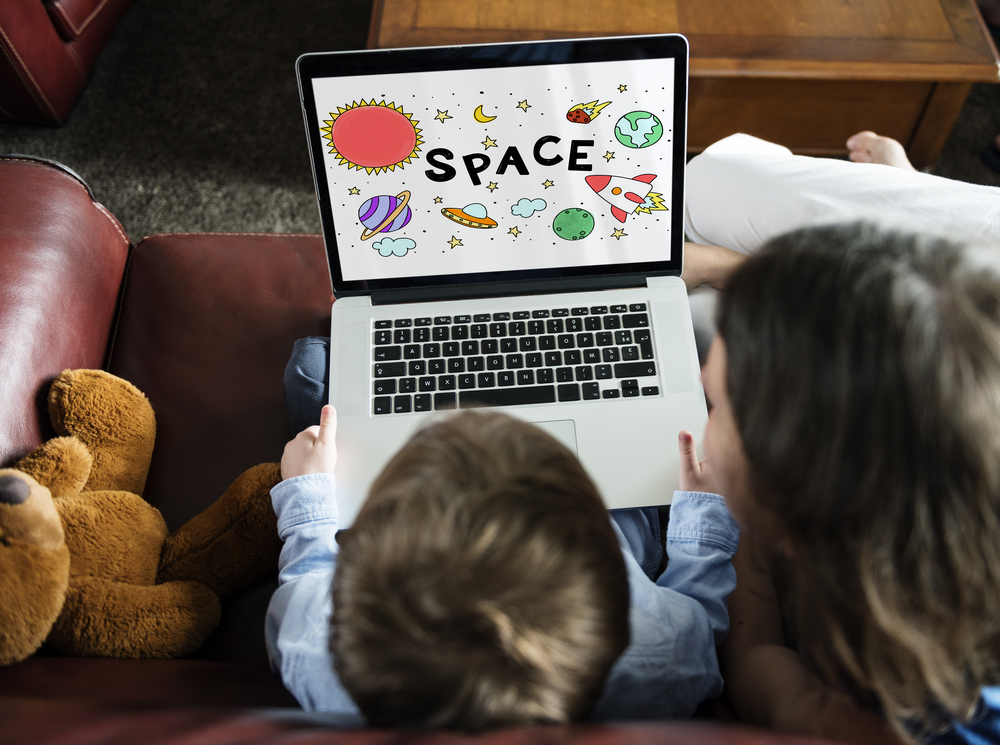Logical thinking Matching Worksheets for Ages 4-8
5 filtered results
-
From - To
Discover our engaging Logical Thinking Matching Worksheets designed for children ages 4 to 8! These fun, interactive resources help young learners develop critical cognitive skills through matching exercises that encourage problem-solving and analytical thinking. Each worksheet is tailored to foster creativity while promoting essential logical reasoning abilities. Perfect for home or classroom use, these activities make learning enjoyable and effective. Watch as your child enhances their understanding of patterns, relationships, and comparisons, all while building their confidence in logical thinking. Join us on the journey to inspire young minds with our captivating worksheets that spark curiosity and support early educational growth!
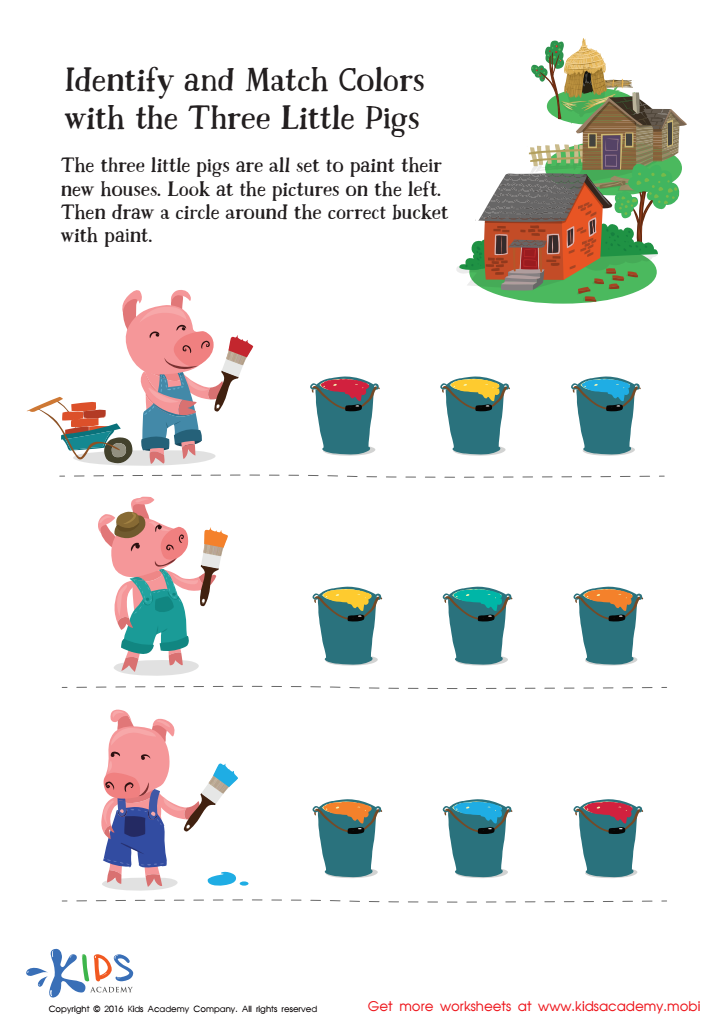

Fairy Tale Worksheet: Identify and Match Colors with Three Little Pigs
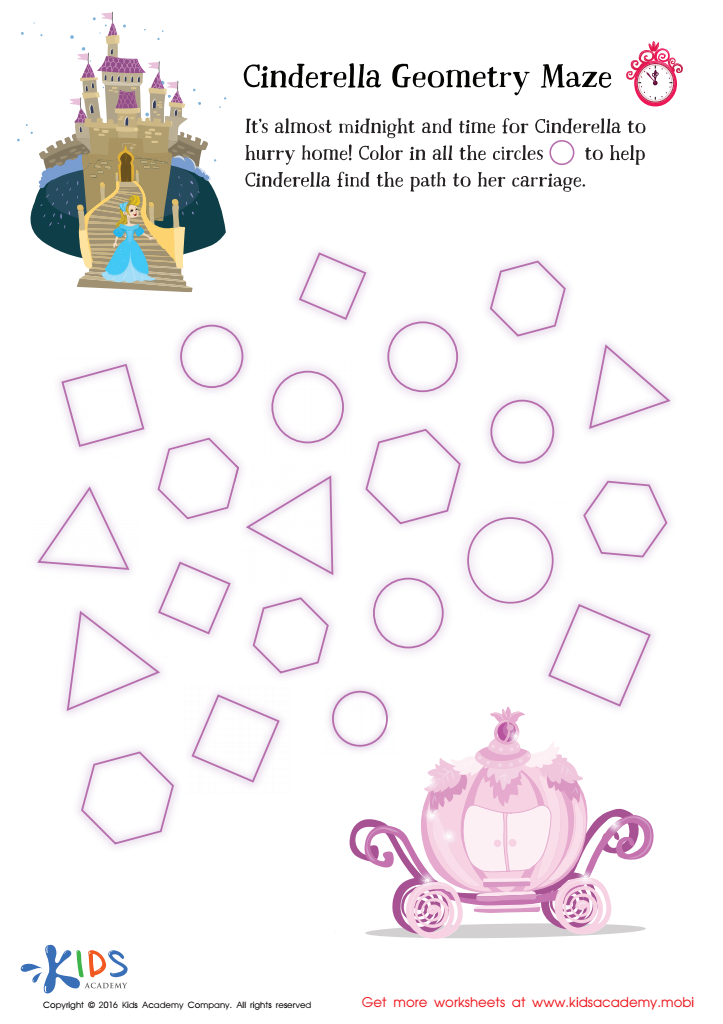

Cinderella Geometry Maze Worksheet
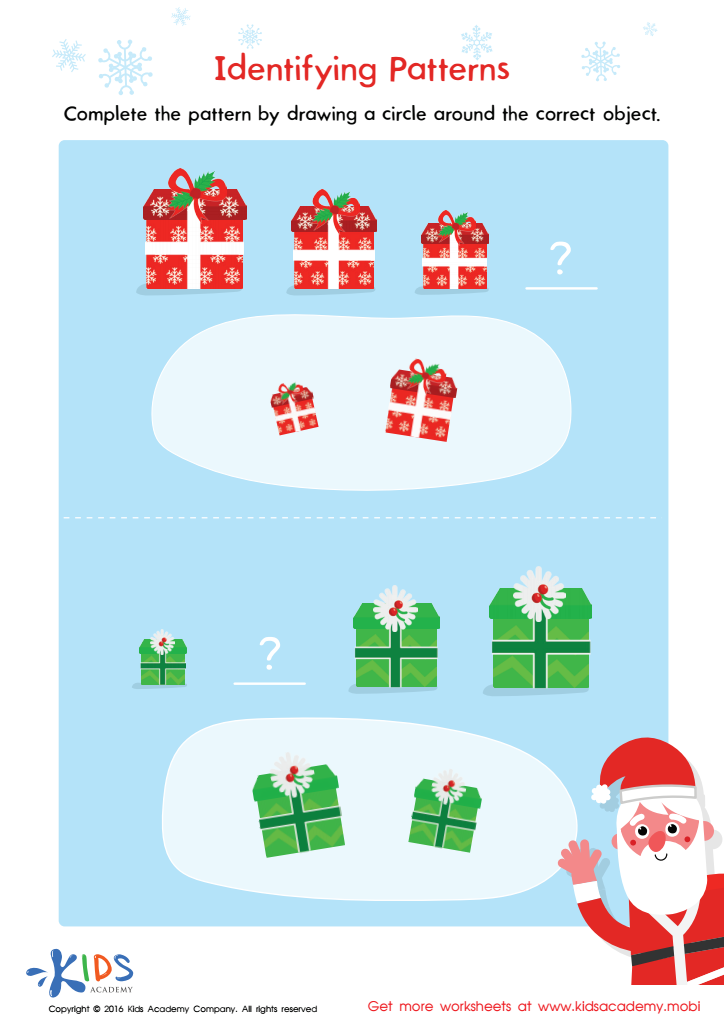

Identifying Patterns Worksheet
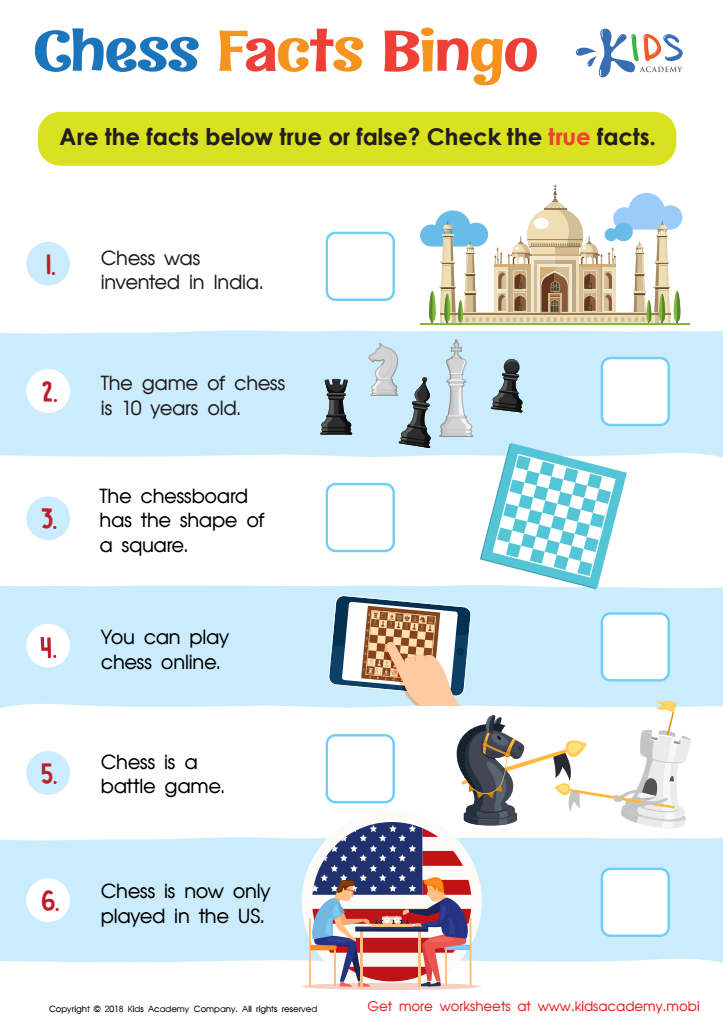

Chess Facts Bingo Worksheet
Logical thinking and matching skills are crucial for children aged 4-8, as they lay the foundation for critical thinking, problem-solving, and analytical reasoning. These skills help children make connections between different ideas and concepts, fostering cognitive development and enhancing their understanding of the world around them.
During this developmental stage, children are naturally curious and engaged in learning. Encouraging logical thinking through matching exercises—such as identifying patterns, categorizing objects, or recognizing similarities and differences—helps sharpen their reasoning abilities. This not only prepares them for more complex tasks in school but also nurtures their intrinsic enthusiasm for learning.
Additionally, cultivating matching skills can boost children's confidence and independence. As they successfully complete matching tasks, they gain a sense of accomplishment, which encourages them to tackle new challenges. Moreover, these skills are essential in various subjects, including math, science, and language arts, making them invaluable for academic success.
Parents and teachers play a vital role in facilitating logical thinking and matching activities. By integrating games, puzzles, and hands-on activities into daily learning routines, they can create a supportive environment that promotes cognitive growth, ensuring children thrive in their educational journeys and develop lifelong learning skills.
 Assign to My Students
Assign to My Students
